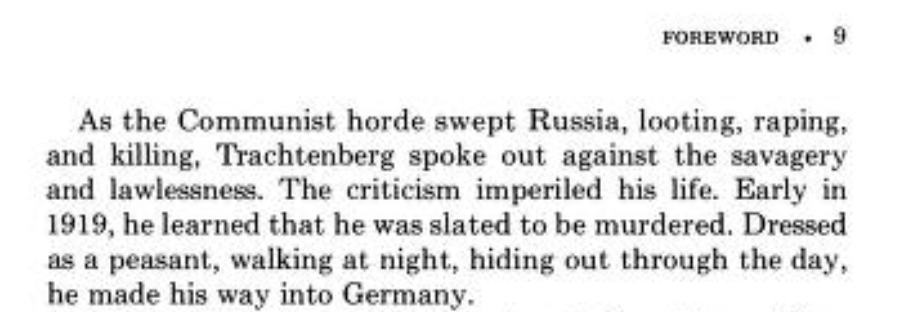I’m gonna be honest y’all, all throughout my life people have given me so much shit for asking why something happens- repeatedly calling me childlike, telling me that’s just the way it is, it is what it is, etc. Shit sucks
Bringing this back to math though, the best math teachers I’ve ever had didn’t see a problem with providing the “why” and when that was given, I kinda succeeded. Who could’ve guessed, I didn’t hate math and thought there was a chance that I could do it if someone explained it in my language!
Trying to relearn some stuff for my own benefit, thought this new comm might be a good place to start my journey so let me know if you have any suggestions!
What sort of "why" are you wanting/looking for? Like foundational logic and how to prove things, maybe even some set theory? Intuitive explanations of math you have already learned to help it click(what specific math is that, precalc? calc? algebraic topology?)? What is [Insert math here] use in the real world and why learn it(what math do you want to learn for that)?
I haven't read it (but I would be willing to to give a bit of a better report) but I have heard good things about Measurement by Lockhart and his other book Arithmetic. They are more conversational approaches, and not really textbooks but my understanding is they are meant to give "real" understanding of "basic math". Could be worth looking into to see if that sounds like the type of book you want. Lockhart is known for his 25 page essay A Mathematician's Lament which very critical of (math) education, and gives a bit of his philosophy on it so that could give you an idea of his approach(it has been over a decade since I have read it but I remember liking)
I will check those out, thank ya!
To answer your question though, yeah I’m probably looking for set theory/proofs.
I don’t know much about math in general (stalled out at college algebra then barely made it through discrete) but I’m sorta speaking in the context of what is true and what is *false, which is self-explanatory in proofs
When you say you want to know about the "why" in the context of math, is it like "why should I learn this stuff" or "why is this true?"
My math interest is more in the abstract rather than practical applications (and also it really depends on the particular math subject) so I don't have many recommendations for the former, but for the latter I think that learning math that's proof based can really help with that. I guess this also depends on the math you're trying to learn, but I have some resources to recommend here.
If you know some calculus but want to learn more about the "why", an acquaintance of mine wrote something called Intuitive Explanations: https://intuitiveexplanations.com/assets/CalculusIntuitiveExplanations.pdf
If you want to learn a little about a lot of different math subjects, this is a book I read some parts of and generally highly recommend: Beyond Numeracy. Another recommendation along these lines is the YouTube channel 3blue1brown, I think that person does a really good job breaking down difficult concepts into approachable video lectures.
I don't have any particular proof based books to recommend (I learned the concepts in uni classes) but something that I'd keep in mind if I were you is that sometimes when you're following along with a proof, the proof will start to assert something that doesn't immediately make sense why they're doing that. If you suspend looking for the why until you've read the whole proof, often it will make more sense in retrospect (e.g. "oh, they arrested X so they could show Y so they could show Z which lets them prove A")
I also agree with the other commenter that it'd be useful to know more about the type of math you're looking for because the subject is so wide. For example, maybe you're looking for introductory algebra or precalculus, or maybe you want math that's useful, or math that's interesting and accessible but not normally studied in high school, or maybe you're really interested in differential equations.
Yeah I think I need a brush-up starting at college algebra. I suppose this might be the case for all maths, but there were some sections that came relatively easy and some that were pretty challenging.
I should’ve spent more time on the challenging sections in retrospect but instead decided that I was incapable of those which kinda echoes some of the sentiments discussed in a previous post here, interestingly enough.
I read this when I was a child and I think it helped build a lot of intuition about numbers (and Trachtenberg's story was quite inspiring as a small jewish kid)
it explains why the techniques work but it's not particularly deep and is mostly good for getting extremely fast at arithmetic with numbers that seem quite scary due to their size.
Would you mind elaborating a bit more on what kinds of math you're interested in and maybe what you remember connecting with or find particularly inaccessible in your earlier mathematical education?
I've gone through the multiplying by 12, 11 and 6 parts and it's good, but it wouldn't be an American textbook without an obligatory "Communism Bad"
Show
Hmm. Who was being looted, textbook? The Czars and the nobility.
it wouldn't be an American textbook without an obligatory "Communism Bad"
lmao truly
I think college algebra is where I kinda ended. Granted, I passed a discrete course, but it was during Covid so that was basically a farce. I’d probably struggle if you asked me anything about it tbh
I’m probably thinking of some kind of proof based literature but at an elementary level?
Heartily recommend Proofs from THE BOOK by Aigner and Ziegler which are proofs that the great Erdös (would have) found worthy.
It's a potpourri of different proofs selected by how enjoyable they are with some context surrounding it. It's not a textbook but something for math enjoyers to enjoy without being pop science.
This site helped me a lot when I was relearning math to teach myself programming.
https://betterexplained.com/articles/developing-your-intuition-for-math/
I don't know that there is a why in proper math study. You know how any number plus nine is one less and ten more? So you can just rearrange the numbers without doing the math as such? Thst is an artifact of how we do math. When you look at other states with other math systems they had other little gimmicks. Like, the way you did calculations on an abacus or with calculation boards is wild to my mind. I can only think of numberplate on YouTube that covers any of this but I am not deeply a math's person. I just think it is neat. I have veen trying you learn babalonian finger counting and cool math tricks to do with that but I am not sure it will ever have a purpose really
There’s definitely a why for all mathematics but it’s difficult to find the right explanation for your audience. High school mathematics is often the surface level of a deeper structure that is deemed too complex to teach to high school students. But I think in most countries education books tend to too often give false or no explanations rather than good explanations that are a bit complex.
Every student is different and some people do prefer to memorise derivatives instead of understanding how to derive them. This should be accepted and made possible when the student is not intending to become a mathematician or a scientist. However that does not mean that the deeper explanation should be withhold or ignored. My math books always had blue optional to read boxes of text that would provide answers to the why questions. I think that that is very good for students who need those answers to be able to learn. I still believe it would overall be better for most students if mathematics education was more focused on untangling the entire structure of a domain and maybe covering a bit less subjects rather than staying on the surface while covering more subjects but I don’t know if that’s my own bias speaking.
If you ask the why questions often enough in mathematics you will enter the more philosophical domain of the foundations of mathematics. I wonder if anyone has ever tried incorporating that domain into high school mathematics, it would be fun to teach.



